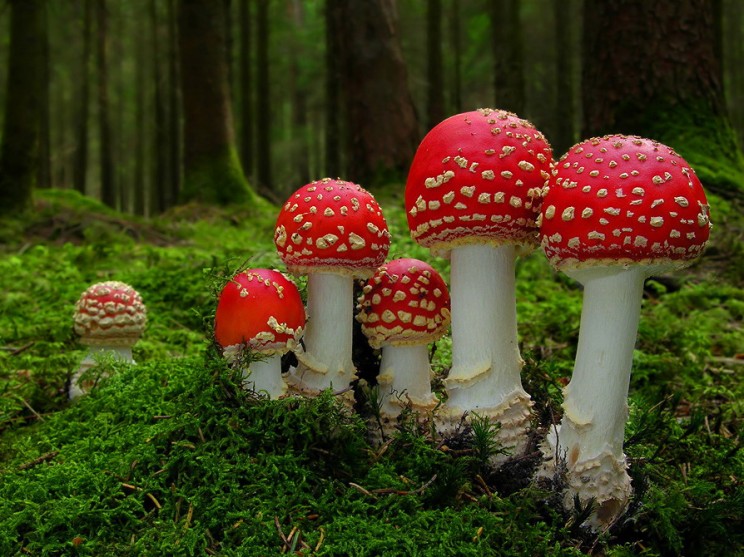By Nicholas P. Money
A grown-up neighbor in the English village of my childhood told stories about angels that sat upon our shoulders and fairies that lived in her snapdragons. Like the other kids, I searched her flowers for a glimpse of the sprites, but agnosticism imbibed from my parents quickly overruled this innocent play. Yet there was magic in my neighbor’s garden and I had seen real angels on her lawn: little stalked bells that poked from the dew-drenched grass on autumn mornings; evanescent beauties whose delicately balanced caps quivered to the touch. By afternoon they were gone, shriveled into the greenery. Does any living thing seem more supernatural to a child than a mushroom? Their prevalence in fairy tale illustrations and fantasy movies suggests not. Like no other species, the strangeness of fungi survives the loss of innocence about the limits of nature. They trump the supernatural, their magic intensifying as we learn more about them.
Once upon a time, I spent 30 years studying mushrooms and other fungi. Now, as my scientific interests broaden with my waistline, I would like to share three things that I have learned about the meaning of life from thinking about these extraordinary sex organs and the microbes that produce them. This mycological inquiry has revealed the following: (i) life on land would collapse without the activities of mushrooms; (ii) we owe our existence to mushrooms; and (iii) there is (probably) no God. The logic is spotless.
Mushrooms are masterpieces of natural engineering. The overnight appearance of the fruit body is a pneumatic process, with the inflation of millions of preformed cells extending the stem, pushing earth aside, and unfolding the cap. Once exposed, the gills of a meadow mushroom shed an astonishing 30,000 spores per second, delivering billions of allergenic particles into the air every day. A minority of spores alights and germinates on fertile ground and some species are capable of spawning the largest and longest-lived organisms on the planet. Mushroom colonies burrow through soil and rotting wood. Some hook into the roots of forest trees and engage in mutually supportive symbioses; others are pathogens that decorate their food sources with hardened hooves and fleshy shelves. Mushrooms work with insects too, fed by and feeding leaf-cutter ants in the New World and termites in the Old World. Among the staggering diversity of mushroom-forming fungi we also find strange apparitions including gigantic puffballs, phallic eruptions with revolting aromas, and tiny “bird’s nests” whose spore-filled eggs are splashed out by raindrops.
Mushrooms have been around for tens of millions of years and their activities are indispensable for the operation of the biosphere. Through their relationships with plants and animals, mushrooms are essential for forest and grassland ecology, climate control and atmospheric chemistry, water purification, and the maintenance of biodiversity. This first point, about the ecological significance of mushrooms, is obvious, yet the 16,000 described species of mushroom-forming fungi are members of the most poorly understood kingdom of life. The second point requires a dash of lateral thinking. Because humans evolved in ecosystems dependent upon mushrooms there would be no us without mushrooms. And no matter how superior we feel, humans remain dependent upon the continual activity of these fungi. The relationship isn’t reciprocal: without us there would definitely be mushrooms. Judged against the rest of life (and, so often, we do place ourselves against the rest of nature) humans can be considered as a recent and damag



